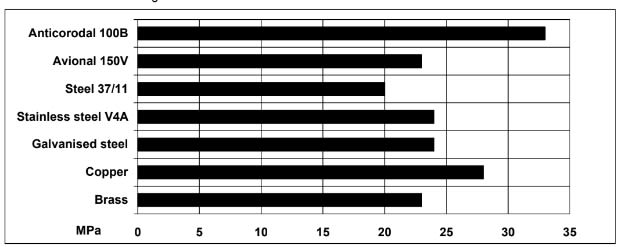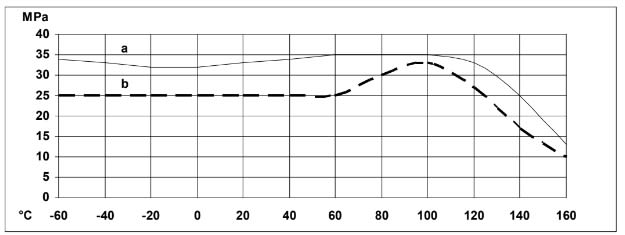Enhanced TDS
Identification & Functionality
- Chemical Family
- Function
- Epoxy Adhesive,Structural Adhesive
- RTU Product Type
- Technologies
- Product Families
Features & Benefits
- Ready-to-Use Product Features
- Key Properties
- Cures at 120-200°C
- Heat resistant to 150°C
- Shock curing possible
- Good resistance to chemicals
- Bonds a wide variety of materials in industrial use
Applications & Uses
- Compatible Substrates & Surfaces
Properties
- Physical Form
Regulatory & Compliance
- Certifications & Compliance
- Chemical Inventories
Technical Details & Test Data
- Typical Cured Properties
Unless otherwise stated, the figures given below were all determined by testing standard specimens made by lap- jointing 115 x 25 x 1.5 mm strips of aluminium alloy. The joint area was 12.5 x 25 mm in each case. The figures were determined with typical production batches using standard testing methods. They are provided solely as technical information and do not constitute a product specification.
Average lap shear strengths of typical metal-to-metal joints (DIN 53283)
Cured for 1 hour at 180°C and tested at 23°C
Pretreatment - Sand blasting
Lap shear strength versus temperature (DIN 53283) (typical average values)
Cure: = 1 hr at 180 C; (a) Anticorodal 100 B (b) Avional 150V

Lap shear strength versus immersion in various media at 23°C (typical average values) (DIN 53283)
Cure :1hr at 180°C, test at 23°C, Avional 150V- Processing Information
Pretreatment
- The strength and durability of a bonded joint are dependant on proper treatment of the surfaces to be bonded.
- At the very least, joint surfaces should be cleaned with a good degreasing agent such as acetone or other proprie-
- Tary degreasing agents in order to remove all traces of oil, grease and dirt.
- Low grade alcohol, gasoline (petrol) or paint thinners should never be used.
- The strongest and most durable joints are obtained by either mechanically abrading or chemically etching (“pickling”) the degreased surfaces. Abrading should be followed by a second degreasing treatment.
Equipment maintenance
- All tools should be cleaned with hot water and soap before adhesives residues have had time to cure. The removal of cured residues is a difficult and time-consuming operation.
- If solvents such as acetone are used for cleaning, operatives should take the appropriate precautions and, in addition, avoid skin and eye contact.
Curing Times
Temperature °C 120 140 160 180 200 Cure time minutes 40 20 Cure time Hours 24 6 2 - - Lap shear strength at 23°C N/mm² 16-20 20-22 20-24 23-27 24-28 - LSS = Lap shear strength on aluminium Avional 150.
- Note 1: Temperatures below 120°C will not give adequate cure even when cure time is prolonged. Cure temperature above 150°C should be avoided when joining materials of different coefficients of linear thermal expansion; otherwise stresses will be set up in the bond line on cooling. This effect is particularly marked where the bond surfaces are large.
- Note 2 : Average values for shock curing 10 min at 220°C or 2 min at 250°C
Safety & Health
- Handling Precautions
Our products are generally quite harmless to handle provided that certain precautions normally taken when handling chemicals are observed. The uncured materials must not, for instance, be allowed to come into contact with food- stuffs or food utensils, and measures should be taken to prevent the uncured materials from coming in contact with the skin, since people with particularly sensitive skin may be affected. The wearing of impervious rubber or plastic gloves will normally be necessary; likewise the use of eye protection. The skin should be thoroughly cleansed at the end of each working period by washing with soap and warm water. The use of solvents is to be avoided. Disposa- ble paper - not cloth towels - should be used to dry the skin. Adequate ventilation of the working area is recommended.
Packaging & Availability
- Regional Availability
Storage & Handling
- Shelf Life Information
ARALDITE® AV 8 may be stored for up to 6 months at 15 - 25°C and 18 months at 2 - 8°C provided the components are stored in sealed containers. The expiry date assuming storage at 2 - 8°C is indicated on the label.
Other
- Appearance
- Beige
- Odor (SDS)
- Slight
- Application Information
Value Units Test Method / Conditions Curing Time 24.0 h h at 120°C Curing Time 6.0 h h at 140°C Curing Time 2.0 h h at 160°C Curing Time 40.0 m m at 180°C Curing Time 20.0 m m at 200°C - Physical Properties
Value Units Test Method / Conditions Flash Point 270.0 °C °C Pensky-Martens Closed Cup (PMCC) Lap Shear Strength 16.0-20.0 N/mm² N/mm² at 23°C, Cure time:at 120°C Lap Shear Strength 20.0-22.0 N/mm² N/mm² at 23°C, Cure time:at 140°C Lap Shear Strength 20.0-24.0 N/mm² N/mm² at 23°C, Cure time:at 160°C Lap Shear Strength 23.0-27.0 N/mm² N/mm² at 23°C, Cure time:at 180°C Lap Shear Strength 24.0-28.0 N/mm² N/mm² at 23°C, Cure time:at 200°C Specific Gravity 1.15-1.25 -
